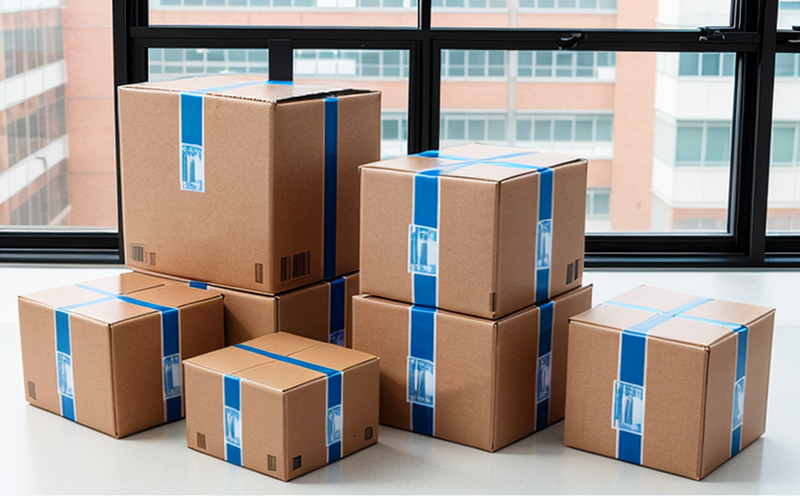DIN EN 1186 Overall Migration of Substances in Plastic Packaging with Nano Additives
The DIN EN 1186 standard specifies the overall migration limits for substances from plastic materials used in contact with foodstuffs, including packaging with nano additives. This stringent regulation is designed to ensure that any substance migrating into food or beverages does not pose a risk to human health.
The standard primarily targets nanomaterials incorporated as functional additives such as antioxidants, antibacterial agents, or UV stabilizers. These substances are often used in plastic packaging to enhance its performance and longevity while ensuring it remains safe for contact with foodstuffs.
Testing under DIN EN 1186 involves several steps that must be meticulously followed:
- Preparation of the specimen, which includes selecting the appropriate type of plastic film or container.
- Setting up migration conditions, such as temperature and time duration.
- Exposure of the specimen to migration media (food simulants).
- Collection of samples from the migration media after exposure.
- Analysis of the collected samples for the presence of substances that may migrate into foodstuffs.
The testing process is critical because it ensures compliance with safety standards, which are crucial not only for consumer protection but also for maintaining brand integrity and market reputation. Compliance with DIN EN 1186 can significantly enhance a company's credibility in the global marketplace, especially within regions where stringent regulations on food packaging are enforced.
For accurate testing under this standard, it is essential to use advanced analytical techniques such as gas chromatography-mass spectrometry (GC-MS) or liquid chromatography-tandem mass spectrometry (LC-MS/MS). These methods provide precise and reliable data on the migration of substances into foodstuffs.
The testing procedure outlined in DIN EN 1186 is designed to simulate real-world conditions, ensuring that any potential risks are identified during development stages. This proactive approach helps manufacturers avoid costly recalls and legal issues down the line.
Understanding the specific requirements under DIN EN 1186 can streamline the product development process for companies operating in this sector. By adhering to these standards early on, businesses can ensure their products meet regulatory expectations without compromising on innovation or quality.
| Parameter | Description |
|---|---|
| Migration Time | The duration for which the specimen is exposed to migration media. |
| Migration Temperature | The temperature at which the exposure takes place. |
| Food Simulant Type | The type of food simulant used in the test. |
| Sampling Point | The location within the migration media where samples are collected for analysis. |
In conclusion, compliance with DIN EN 1186 is a vital step in ensuring that plastic packaging containing nano additives remains safe and reliable when used in contact with foodstuffs. By following this standard rigorously during product development, companies can protect their reputation while meeting regulatory requirements.
Industry Applications
- Nanomaterials Incorporation: This test is crucial for the incorporation of nano materials into plastic packaging to enhance its performance and longevity.
- Consumer Safety Assurance: Ensures that any substances migrating from the packaging do not pose a risk to human health.
- Compliance with Regulatory Standards: Helps companies comply with international standards, ensuring their products meet regulatory expectations.
The test is particularly relevant in sectors like food and beverage packaging where safety and hygiene are paramount. By adhering to DIN EN 1186, manufacturers can ensure that their products not only perform well but also remain safe for consumer use.
| Industry Sector | Description |
|---|---|
| Food Packaging | The primary focus is on ensuring the safety of food packaging materials that contain nano additives. |
| Beverage Packaging | Ensuring beverage containers comply with regulatory standards for safe use in contact with beverages. |
| Pharmaceutical Packaging | The test ensures that drug containers are safe and do not release harmful substances into the medication. |
In each of these sectors, compliance with DIN EN 1186 is essential to maintaining consumer trust and ensuring product safety. By adhering to this standard, companies can enhance their reputation and ensure regulatory compliance.
Eurolab Advantages
At Eurolab, we offer comprehensive testing services that cater specifically to the DIN EN 1186 standard. Our expertise in nanomaterials and polymer science ensures accurate and reliable results. Here are some key advantages of choosing Eurolab:
- State-of-the-Art Facilities: Equipped with advanced analytical instruments such as GC-MS and LC-MS/MS for precise substance analysis.
- Experienced Technicians: Our team comprises highly skilled professionals who understand the intricacies of nano additives in plastic packaging.
- Compliance Support: We provide guidance throughout the product development process to ensure compliance with DIN EN 1186 standards.
- Rapid Turnaround Time: Efficient testing processes allow us to deliver results quickly, enabling faster decision-making and product launches.
By leveraging our specialized knowledge and cutting-edge technology, Eurolab ensures that your products meet the highest safety and quality standards. Our commitment to excellence guarantees that you can trust us with your compliance needs.
International Acceptance and Recognition
DIN EN 1186 is widely recognized globally for its stringent requirements on the safety of plastic packaging materials, especially those containing nano additives. This standard has been adopted by several countries as a means to ensure consumer protection.
The acceptance and recognition of DIN EN 1186 extend beyond national borders, making it an international benchmark in food contact material testing. Compliance with this standard is not only a requirement for manufacturers but also a key factor in gaining market access to regions that enforce similar regulations.
By adhering to DIN EN 1186, companies demonstrate their commitment to quality and safety standards, which can significantly enhance their global reputation. This approach not only protects consumers but also fosters trust among international partners and stakeholders.





